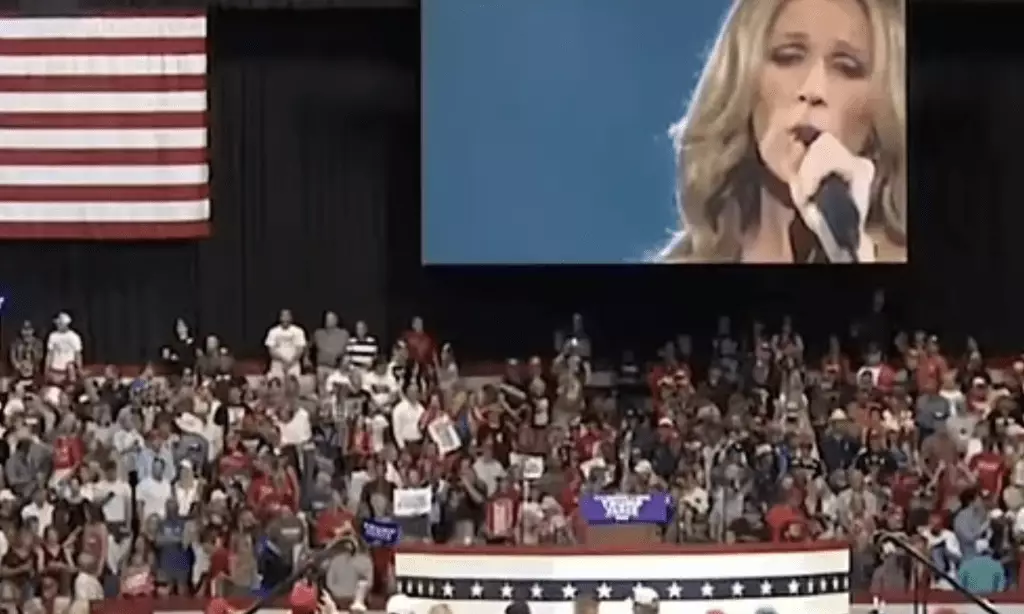During Donald Trump’s recent rally in Montana, his campaign surprised many by blasting Celine Dion’s iconic ballad “My Heart Will Go On,” known to many as the love theme from the blockbuster film Titanic. This choice was met with both laughter and scrutiny, as social media users took the opportunity to point out the considerable irony behind selecting a song associated with a sinking ship to accompany Trump’s appearance. With its poignant lyrics encapsulating loss and longing, the song seems a fitting but humorous metaphor for Trump’s current standing in the political arena.
The Twitterverse erupted in reaction to the seemingly ill-timed musical interlude, with users asking whether Trump’s team might have unwittingly been sabotaged by an insider from the opposing side. This moment raises critical questions about the media strategies of political campaigns and the wisdom of such symbolic choices. The song’s history with Trump is equally noteworthy; it had previously been used at his rallies, raising eyebrows each time due to the layers of irony embedded within the context.
Questions about copyright and permission also loom large in this situation. The rights to “My Heart Will Go On” are owned by 20th Century Fox, and the campaign’s use of the song without clear approval brings forth discussions regarding artistic license and political campaigns. Following inquiries from various news outlets, there’s been no substantial feedback from Dion’s representatives, which leaves many wondering about the legal repercussions that could follow this latest offense. The lack of clarity also reflects a broader trend of political figures using popular music as vehicles for their messages without proper acknowledgment of the artists involved.
This isn’t the first instance in which Trump’s rallies have invoked Celine Dion’s epic ballad. In fact, its recurrence points to an ongoing pattern where the song has surfaced at critical junctures within Trump’s campaign narrative, each time met with critical reactions. When it echoed through a venue in 2020, Whoopi Goldberg noted the “magnificent” irony of the moment, hinting at the disconnect between Trump’s messaging and the poignant symbolism of Dion’s song.
The Montana rally showcased more than just a musical faux pas; it highlighted other missteps from Trump as he misgendered a gold medal-winning Algerian boxer and aimed mockery at the physical appearance of a Democratic senator. Such moments not only showcase a lack of sensitivity but also mirror larger trends in political discourse, where humor often borders on cruelty, leading to divided reactions from supporters and detractors alike.
Ultimately, Trump’s rally serves as a microcosm of contemporary political culture, characterized by irony, controversy, and the often muddled relationship between political messages and artistic expression. As artists like Woodkid have expressed concern over the unauthorized use of their work, it raises the crucial question: how should musical landscapes be navigated in the politically charged environment?


Leave a Reply